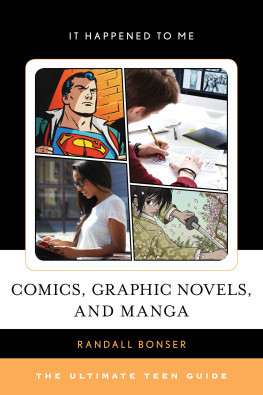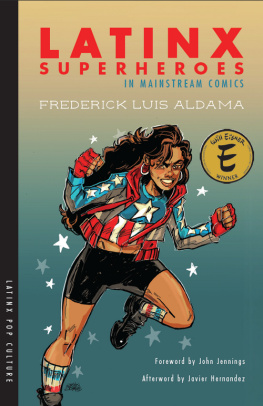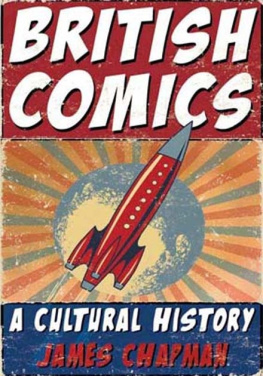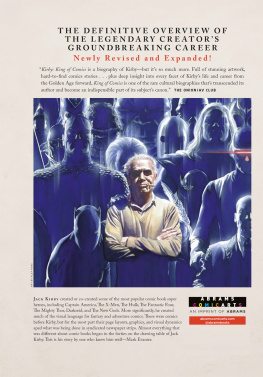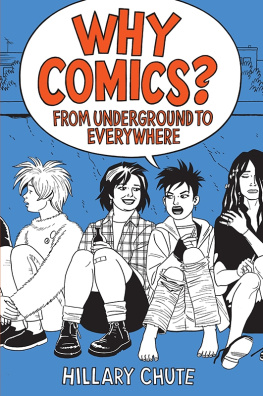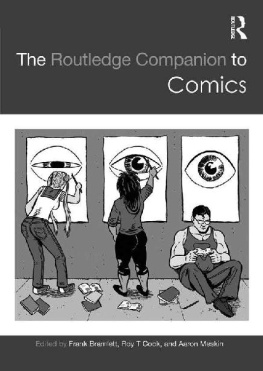University of Iowa Press, Iowa City 52242
Copyright 2019 by the University of Iowa Press
www.uipress.uiowa.edu
ISBN 978-1-60938-655-9 (pbk)
ISBN 978-1-60938-656-6 (ebk)
Printed in the United States of America
Design by April Leidig
No part of this book may be reproduced or used in any form or by any means without permission in writing from the publisher. All reasonable steps have been taken to contact copyright holders of material used in this book. The publisher would be pleased to make suitable arrangements with any whom it has not been possible to reach.
Printed on acid-free paper
Cataloging-in-Publication data is on file
with the Library of Congress.
ACKNOWLEDGMENTS
Wed like to thank Mark LeBar, Tracy Lupher, and Howard Pickett for comments on various chapters, and Robert Arp, Peter Coogan, Matt Smith, and especially Rachael Miller for comments on the entire book. Wed also like to thank Washington and Lee University for Lenfest summer and sabbatical funding. Wed like to thank, as well, Ranjit Arab, Meredith T. Stabel, and everyone else at the University of Iowa Press, Michael P. Patton and several anonymous referees, and Christi Stanforth, for suggestions and support. Finally, wed like to thank our families for putting up not just with the superheroes, not just with the philosophy, but also for this time with both.
Several chapters draw from previously published coauthored work. draws from Economy of the Comic Book Authors Soul, International Journal of Comic Art 18 (2016): 33154.
Finally, a note on ellipses within quotations. Bracketed ellipses, like [...], represent words that weve omitted. Unbracketed ellipses, like... , occur in the original.
INTRODUCTION
What if an evil genius is tricking you into believing that the world around you is real when it really isnt? What if on an alternate Earth everything is identical but for one almost undetectable detail?
What if trying to travel to the past transported you to a different universe instead?
What if a mad scientist removed your brain and is keeping it alive in a vat of nutrients?
What if lightning struck a dead tree in a swamp and transformed it into The Swampman?
Any of these fantastical plots could be the premise of a superhero comic book. Stan Lee sometimes gave artists at Marvel little more to work withjust a note on a piece of paper or a plot point mentioned on the way to his desk. Jack Kirby or Steve Ditko would work out the details.
Except none of those scenarios comes from comics. Theyre all thought experiments written by highly regarded philosophers: Ren Descartes (1641), Hilary Putnam (1973), David Lewis (1976), Hilary Putnam (1981), and Donald Davidson (1986), respectively. We discuss each of them in this book. Fantastical tales are a staple of philosophy, just as they are for comics. Philosopher Peg Tittle includes 126 of them in her 2005 What If... Collected Thought Experiments in Philosophy. But superhero comics were well ahead of her. Marvel published its first What If? in 1977, and DC published a range called Imaginary Tales in the 1950s and included two Just Suppose tales in one of its first 1936 titles.
Philosophers could fill volumes too. David Chalmers writes about zombies, Laurence BonJour about clairvoyants, and Frank Jackson about a scientifically all-knowing woman whos never seen color. The list of potential What if?s seems endless:
What if your body slowly transformed into rock, but no one around you noticed?
What if a god were stripped of his memories and forced to live as a crippled human?
What if a time traveler returned to his childhood and told his past self about the future?
What if you could save the world but had to sacrifice millions of people first?
What if you and all the universe were just the thoughts of a small child?
Except these scenarios dont come from academic philosophy. Theyre all from superhero comics: The Fantastic Four (1961), The Mighty Thor (1968), The Defenders (1975), Watchmen (1987), and Heroes Reborn: The Return (1997). We discuss each of these in this book. And they are no more fantastical than scenarios philosophers have been dreaming up for centuries. Not just What If? and Imaginary Tales, but arguably all superhero comics contain thought experiments. So philosophys most amazing thought experiments could be adapted into a limited series of illustrated superhero comics titled Thought Experiments. But the reverse is true too. We could adapt themes from superhero comics into a philosophy book entitled Superhero Thought Experiments. Because writers and artists of Marvel and DC can be read as philosophers and their works as comic book philosophy, we could subtitle the philosophy book Comic Book Philosophy. Thats of course what we did.
Each chapter of Superhero Thought Experiments: Comic Book Philosophy presents philosophical thought experiments derived from superhero comics. We then select tools from philosophersKants Categorical Imperative, Descartess evil genius, Dennetts intentional stance, and othersto help solve the puzzles that those thought experiments pose by helping to understand the thought experiments themselves. Our goal is to use superhero comics to illustrate philosophy, and in turn to use philosophy to analyze superhero comics. Hopefully, youll learn a lot about both.
Philosophers who identify as analyticwhich the majority of English-speaking philosophers dospend a great deal of time analyzing concepts and defining terms. Though literary critics attempts at analysis and definition tend to be limited to literary concernsincluding, in recent years, comicsthats where philosophy and literary criticism happily collide. For the authors of this book, the collision took place in front of Washington and Lee Universitys English department photocopier. Nathaniel Goldberg had descended from the philosophy floor because their machine was on the fritz. Chris Gavaler, himself in the English department, was doing some copying of his own. Nathaniel struck up a conversation about Chriss superhero blog. Superheroes are not the most typical focus for literary criticism, but Nathaniel assured Chris that philosophers write about weird things too. In fact, Nathaniel is an expert on Donald Davidsons Swampman, a thought experiment that Chris noticed resembled Alan Moores own Swamp Thing. A conference paper in Iceland soon followed and now this book. In the process, Nathaniel learned MLA citation norms and Chris learned what is now one of his favorite phrases, necessary and sufficient, as in What are the necessary and sufficient conditions of being a comic?
Chris answers this question in his recent essay Refining the Comics Form, where he defines a comic as
a static, spatial field with recurrent elements perceived as conceptually discrete images in juxtaposition with other conceptually discrete images, in which the images are pictorial, abstract, typographic, and/or linguistic, but not linguistic and typographic only. (19)
If you prefer a shorter answer, we recommend Scott McClouds pioneering 1993 definition: juxtaposed pictorial and other images in deliberate sequence, intended to convey information and/or produce an aesthetic response in the viewer (


